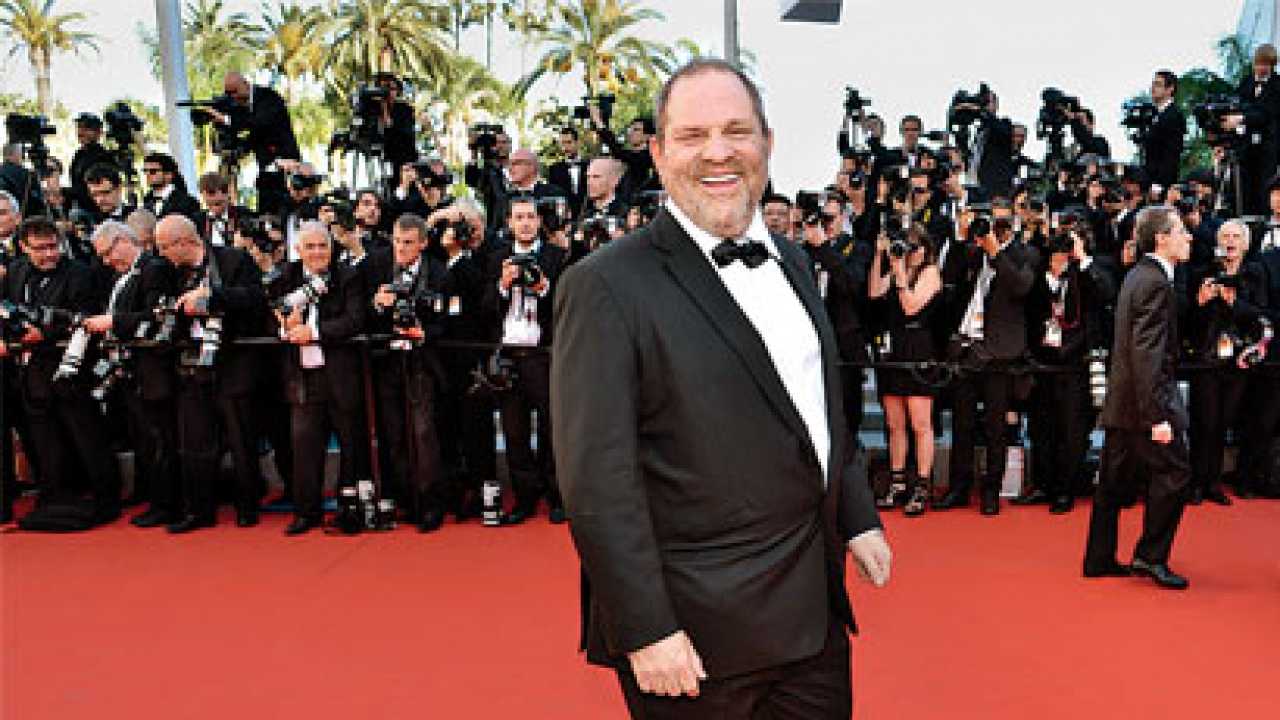
In Peter Biskind’s wonderful book Down And Dirty Pictures, about the backstage politics of Oscar-worthy movies, there’s a tirade by movie moghul Harvey Weinstein that begins like this: “If I don’t sit next to Day-Lewis at the Oscars, I’m going to hit someone.”
It was just before the 1989 awards when Daniel Day-Lewis was nominated for My Left Foot, which was distributed by Weinstein’s company, Miramax. At the time, Miramax was just on the verge of getting into the serious business of producing serious cinema (read: Oscar nominees). Over the next decade, Weinstein would end up producing almost every other Oscar nominated film. (This year they have Silver Linings Playbook and Django Unchained.)
But back to flashback, when Weinstein hadn’t become an Oscar factory and when he was told he’d have to sit further back than Day-Lewis.
“I’m Harvey Weinstein,” he informed his assistant. “If I sit several rows behind [Day-Lewis], people will think I’m bankrupt. I need to be up front, looking the other studios in the eye. I don’t care if you have to put me on Jack Nicholson’s lap. Do it.” This anecdote, apart from offering insight into the aggression required to be a player in Hollywood, is telling of what the Oscars are: a gladiatorial arena for American motion pictures.
As viewers of the ceremony, we think of the Oscars as a spectacular event filled with grace and fashionable dresses, where great performances and artistic skill win awards based on merit. The place where a certain kind of big cinema with grandiose themes and visual genius present us with a consumable morality that makes the world a bit more hopeful that year. Within this construct, there are always unexpected delights. Julia Roberts lip locking Denzel Washington when he became the first black actor to win Best Actor. Michael Moore giving America a civics lesson in his acceptance speech. Woody Allen doing stand up after 9/11 to promote filmmaking in New York. And our very own legend Anil Kapoor being first on stage, well before the director, when Slumdog Millionaire won.
The evening is positioned as a magical night when the Academy of Motion Pictures Arts and Sciences – a Hollywood body of past winners, film gurus and assorted insiders — gives away awards that have been decided in complete secrecy. It’s all fair and just and meritorious.
None of this is true.
The Oscars are as calculated as an IIT-JEE entrance exam. Every September-ish, studios release their Oscar-worthy stock of the year. From then to February, there is a relentless marketing push to create ‘Oscar buzz’. First among the public, then among Academy members. They are wined, dined; screenings are set up for them. Publicists are hired to constantly bombard them with how good this or that movie is. Stories range from studio marketing people waiting in cars outside Academy members’ houses and spying to see whether he/she is actually watching, to dropping an academy members’ kid to school, to making sure the voting member is not dead.
It’s like any club or society election in India, multiplied by 150. Fortunately, the art of negotiated bribery or a star saying ‘I won’t show up unless you give me an award’ hasn’t reached them yet, or the awards would have a distinctly Indian flavour.
Till then of course, it is about the show. And about being seen. Not the movies. The people. Whether it’s Harvey Weinstein sitting on Jack Nicholson’s lap or George Clooney smouldering or Anil Kapoor waving like he’s won something, if the faces aren’t making a noise from a Friday in September, the statue isn’t yours on a Sunday night in February.
Anuvab Pal is a playwright, stand-up comedian and the author of Chaos Theory.